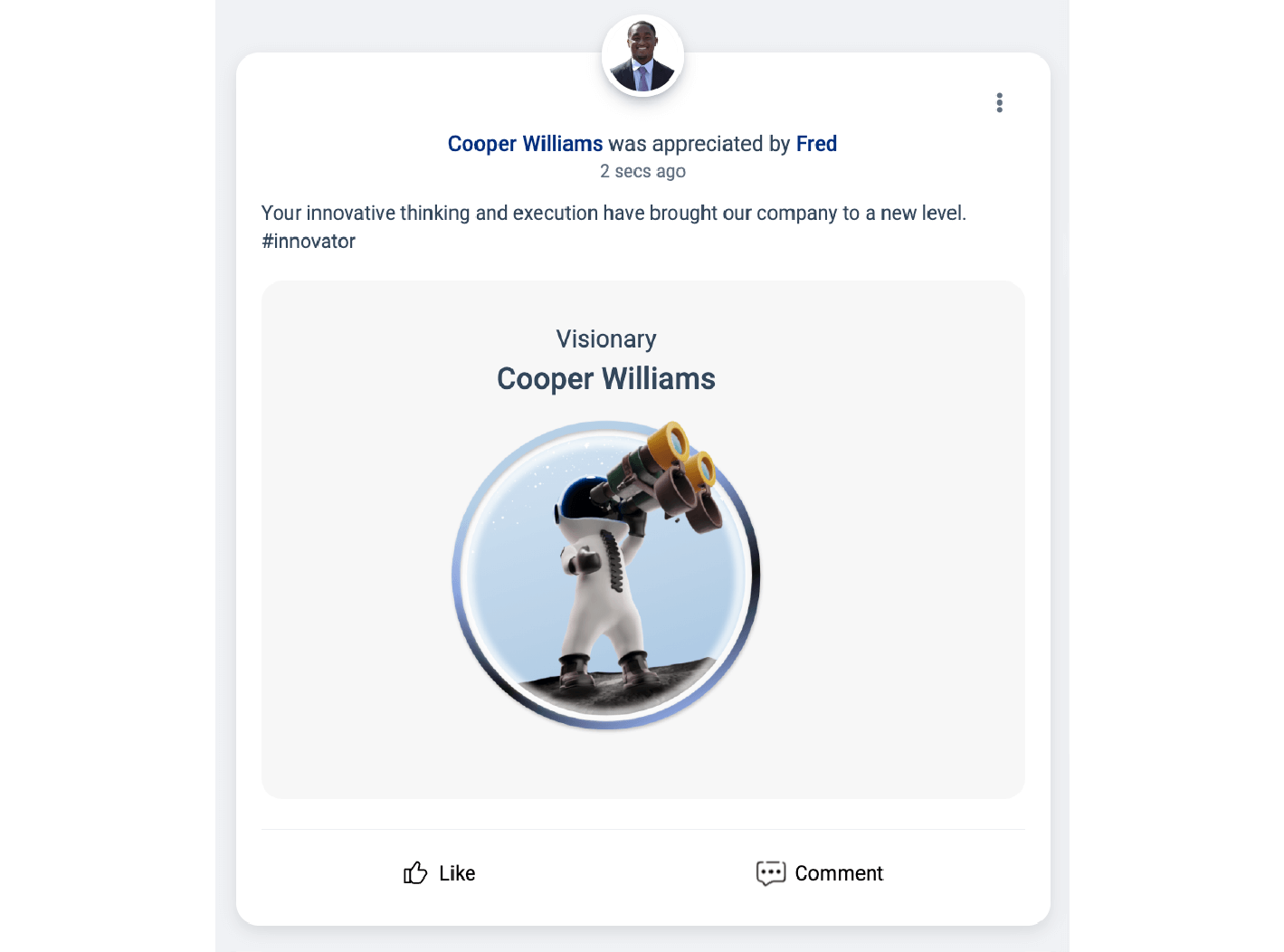18 Key Leadership Behaviors That Matter In 2024
Leadership is more than just a title; it's a profound responsibility to inspire and guide others toward a shared vision. In today's ever-changing landscape, fostering effective leadership behaviors has become more crucial than ever before.
As we navigate the complexities of 2024, the ability to lead with purpose, empathy, and strategic foresight will be the driving force behind organizational success.
But what truly sets exceptional leaders apart? What behaviors do they embody that propel their teams to new heights of achievement? In this comprehensive blog, we'll explore in-depth the essential leadership behaviors that pave the way for greatness.
Through insightful analysis and real-world examples, we'll uncover the secrets that will inspire you to hone your leadership skills. So, let's dive in!
Key Takeaways
- What are Leadership Behaviors?
- Understanding the Benefits of Leadership Behaviors
- 18 Example of Key Leadership Behaviors That Matter
What are Leadership Behaviors?

"Leadership is a series of behaviors rather than a role for heroes." ~ Margaret Wheatley.
Leadership behavior refers to the traits and actions that individuals exhibit in their roles. It encompasses how they communicate, make decisions, delegate responsibilities, manage conflicts, and inspire others.
Effective leadership behavior plays a crucial role in guiding, directing, and influencing the work of others to achieve specific goals. Leaders who exhibit these behaviors can inspire their teams to perform their best and achieve success.
Benefits of Leadership Behavior
-
Better Decision-Making: Leaders who demonstrate behaviors like analytical thinking and consider multiple perspectives are more likely to make well-informed decisions.
-
Stronger Organizational Culture: Leadership behaviors that align with the organization's values and mission help shape a strong organizational culture.
-
Increased Employee Engagement: Leaders who exhibit positive behaviors like clear communication tend to foster higher levels of employee engagement within their teams.
-
Enhanced Innovation and Creativity: Leadership behaviors that encourage risk-taking and out-of-the-box thinking create an environment that fosters innovation and creativity.
-
Improved Talent Retention: Effective leadership behaviors prioritize professional development, recognition, and work-life balance. This contributes to higher talent retention rates and a more engaged workforce.
18 Key Leadership Behavior Examples

1. Visionary
"Good business leaders create a vision, articulate the vision, passionately own the vision, and relentlessly drive it to completion." ~ Jack Welch.
A leader with vision can predict and foresee the future. This helps them guide and motivate the employees towards achieving common goals. They set ambitious yet achievable goals and create a roadmap for others to follow.
However, to be a visionary leader, you need to understand what to prioritize and how to break them down. You need to work on the things that will benefit everyone in the future.
Let's take Steve Jobs, the co-founder of Apple, who revolutionized the technology industry. He was a visionary leader who envisioned a world where computers and devices would be user-friendly, innovative, and beautifully designed.
2. Empathy

Leaders with this behavior can understand and share others' feelings. They actively listen, provide support, and consider others' emotions in decision-making.
Empathetic leaders are better equipped to build strong relationships and motivate their teams.
One such example is Oprah Winfrey. She is known for her ability to connect with people from diverse backgrounds and empathize with their experiences. This has made her a respected and influential figure in the media.
3. Decisive
Decisiveness is an essential leadership behavior that is seldom discussed.
A decisive leader can make tough decisions promptly, even in the face of uncertainty or pressure. This type of leader instills confidence in their teams and ensures progress towards achieving goals.
Individuals with this leadership behavior are ready to take ownership and are willing to take calculated risks when necessary.
4. Versatile
Versatile leaders are adaptable and can navigate different situations and challenges.
They are flexible in their approach and can pivot strategies when needed. This quality allows them to lead their teams through challenging times and seize opportunities as they arise.
Individuals with this leadership quality are open to change and learn from failures. For instance, Reed Hastings, the co-founder and CEO of Netflix, is known for his versatile leadership style.
When the company transitioned from DVD rentals to online streaming, Hastings embraced the change and adapted Netflix's business model accordingly. This enabled Netflix to become a global leader in the entertainment industry.
5. Resilience
Resilience is one of the most important behaviors of effective leadership. It can help you bounce back from setbacks and maintain a positive attitude even during difficult times.
Resilient leaders inspire others to persevere and overcome obstacles, fostering a culture of determination and grit. Nelson Mandela was one such resilient leader. Despite years of imprisonment, he remained resilient in his fight against apartheid in South Africa, ultimately contributing to the abolition of the oppressive system.
6. Effective Communication

A leader who possesses effective communication skills serves as a cornerstone for organizational success and employee well-being. Such a leader fosters a sense of trust, transparency, and cohesion within the organization.
Moreover, effective communication facilitates collaboration and problem-solving, as team members feel comfortable sharing ideas, concerns, and feedback. This open exchange of information enhances the decision-making processes.
7. Open to Feedback
A study by Zenger Folkman found that leaders who actively seek feedback are more effective and better at developing their teams.
Being open to feedback demonstrates humility and a willingness to learn. Leaders who are open to feedback use it to improve themselves and refine their leadership approach. They understand that feedback is an opportunity for growth and improvement.
Additionally, being open to feedback helps leaders build trust and credibility. When team members see that their feedback is taken seriously and acted upon, they are more likely to trust their leaders and feel valued as part of the team.
8. Celebrating success
Recognizing and celebrating the achievements and successes of your team members is an essential aspect of effective leadership. It creates a positive work environment and motivates employees to strive for excellence.
Leaders who value recognition and appreciation make it a priority to cultivate an environment where achievements, whether big or small, are acknowledged. They understand the value of rewarding and recognizing their employees. This ability helps such leaders to strategically implement it in the work culture and empower the workforce.

Source: Vantage Rewards
9. Data-Driven Decision-Making
Leaders who rely on data for decision-making can make informed and strategic choices. They leverage data to identify opportunities for improvement, optimize processes, and respond swiftly to changing circumstances.
Data-driven leaders are committed to continuous improvement and, therefore, analyze data to identify trends, forecast outcomes, and drive business growth. This approach mitigates the risks of decision-making based on intuition or incomplete information.
10. Continuous Learning and Growth Mindset
Leaders with this behavioral trait prioritize continuous learning. They are always seeking new knowledge and skills to improve themselves and their teams. They have a growth mindset, believing that abilities can be developed through dedication and hard work.
Leaders with this trait also understand the importance of self-improvement in driving team success. By continuously learning and developing their skills, they set a positive example for others and create a culture that values growth and development.
11. Embracing Digital Transformation

A report by IDC predicts that by 2024, organizations that are digitally transformed will generate $53.3 trillion in value.
Visionary leaders recognize that the future belongs to those who can seamlessly adapt to the ever-changing technological landscape. Leveraging digital tools are essential to drive innovation, enhance efficiency, and foster a competitive edge.
With this key leadership behavior, you can prepare your organization to thrive in the digital era by investing in the essential tools, platforms, and upskilling. Amazon's founder, Jeff Bezos, is a prime example of a leader who embraced digital transformation.
Bezos leveraged technology and data to improve customer experiences, streamline operations, and drive innovation within the company.
12. Authenticity and Transparency
Authenticity and transparency can profoundly impact team morale and overall organizational success. When leaders are authentic, they build trust and credibility with their teams and stakeholders.
Transparent leaders openly share information, admit mistakes, and are accountable for their decisions. Leaders who exhibit these behaviors inspire trust and loyalty in their teams and set a positive example for others to follow.
13. Inspirational
A Gallup study found that teams with inspirational leaders have 27% higher revenue per employee.
Inspirational leaders can motivate and energize their teams when times are tough. They have a strong understanding of the human psyche and instill a sense of purpose in the work others do. They lead by example, embodying the values and behaviors they expect from others.
Malala Yousafzai is a great example who has inspired millions with her courage and advocacy for girls' education. She has become a symbol of hope and courage worldwide.
14. Cultural Intelligence
To be culturally intelligent, a leader needs to be empathetic, have a high emotional quotient (EQ), and, most of all, respect people from different backgrounds.
When leaders have cultural intelligence, they can understand the varying needs and complexities of a diverse workforce. They can adapt their leadership style to accommodate cultural differences and promote inclusivity. This enables them to work effectively in diverse environments.
15. Innovation and Creativity

Innovative leaders encourage experimentation and embrace new ideas. They challenge the status quo and drive creativity within the workforce. This helps the workforce try out different solutions to a problem without fear of judgment. In the long run, it improves confidence and the overall problem-solving ability of the workforce.
For instance, Elon Musk, the CEO of Tesla and SpaceX, is renowned for his innovative and creative leadership style. He encourages his teams to think outside the box and pursue ambitious goals.
16. Taking Accountability
According to a survey by the Harvard Business Review, 92% of respondents said they were more likely to trust a leader who admitted their mistakes.
Nothing builds engagement more than being accountable to the people in your organization. Leaders who own up to mistakes, learn from them, and take corrective measures when needed build trust and credibility.
Mary Barra, CEO of General Motors is a great example of a leader who demonstrated accountability when the situation demanded. In 2014, she openly acknowledged the faulty ignition switches issue at General Motors and committed herself to solve the issue.
Barra's determination to learn from the crisis demonstrated her commitment to doing the right thing.
17. Time Management

Time management is a critical leadership behavior as it allows leaders to maximize their productivity and prioritize tasks effectively. They value their time and that of others, ensuring productivity and achieving goals.
A leader who excels in time management can set a positive example for the entire team, demonstrating the value of prioritization, efficiency, and productivity.
Additionally, a leader with strong time management skills can streamline workflows, ensuring that all the projects are completed on schedule.
18. Compassionate
Leaders with compassionate behavior show genuine care and concern for the well-being of their teams and stakeholders. A compassionate leader is attentive to the needs of their team members and is willing to offer support and guidance when needed.
Additionally, compassion can improve communication and collaboration within a team. When team members feel that their leader cares about their well-being, they are more likely to communicate openly and work together effectively.
Recommended Read: Top 15 Essential Leadership Qualities to Thrive in Today’s Workplace (with Tips)
Finally
In conclusion, effective leadership requires a combination of key behaviors that inspire, motivate, and guide teams toward success. From visionary thinking to compassionate leadership, each behavior plays a crucial role in shaping a strong organizational culture.
As you strive to enhance your leadership skills, remember that your actions today shape the organization of tomorrow. Embrace these key behaviors and cultivate a dynamic and thriving workplace now.


















